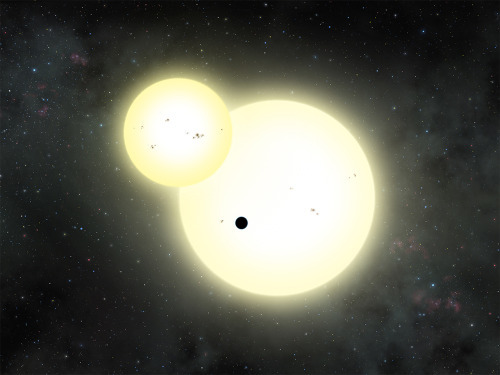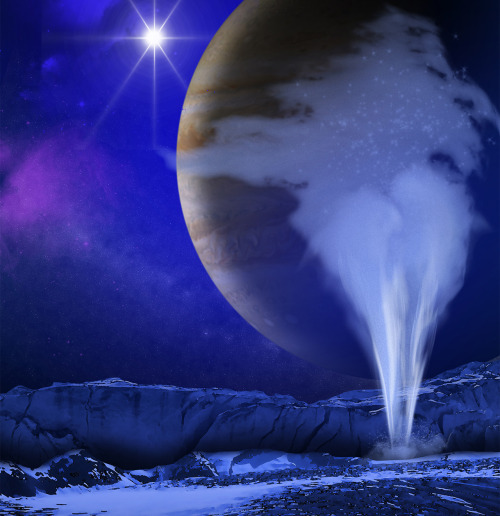I Always Loved Scooby-Doo
I always loved Scooby-Doo

velma and daphne 💕
More Posts from Fionaahutton and Others
Cool nails. 💅🏼

🔥🏵🌸💅🏼
Love the colours

I care.
“I keep a lot of shit to myself because in reality nobody really gives a fuck.”
— x
TV station got punked badly. 😂
Relevant part starts at: 13 minutes and 38 seconds. https://youtu.be/wdv_tWDqNEA?t=13m38s
I just 💖 these nails. 💅🏼

It’s May the 4th: Are Star Wars Planets Real?
Look at what we’ve found so far.
Is your favorite Star Wars planet a desert world or an ice planet or a jungle moon?
It’s possible that your favorite planet exists right here in our galaxy. Astronomers have found over 3,400 planets around other stars, called “exoplanets.”
Some of these alien worlds could be very similar to arid Tatooine, watery Scarif and even frozen Hoth, according to NASA scientists.
Find out if your planet exists in a galaxy far, far away or all around you. And May the Fourth be with you!
Planets With Two Suns

From Luke Skywalker’s home world Tatooine, you can stand in the orange glow of a double sunset. The same could said for Kepler-16b, a cold gas giant roughly the size of Saturn, that orbits two stars. Kepler-16b was the Kepler telescopes’s first discovery of a planet in a “circumbinary” orbit (that is, circling both stars, as opposed to just one, in a double star system).

The best part is that Tatooine aka Kepler-16b was just the first. It has family. A LOT of family. Half the stars in our galaxy are pairs, rather than single stars like our sun. If every star has at least one planet, that’s billions of worlds with two suns. Billions! Maybe waiting for life to be found on them.
Desert Worlds

Mars is a cold desert planet in our solar system, and we have plenty of examples of scorching hot planets in our galaxy (like Kepler-10b), which orbits its star in less than a day)! Scientists think that if there are other habitable planets in the galaxy, they’re more likely to be desert planets than ocean worlds. That’s because ocean worlds freeze when they’re too far from their star, or boil off their water if they’re too close, potentially making them unlivable. Perhaps, it’s not so weird that both Luke Skywalker and Rey grew up on planets that look a lot alike.
Ice Planets

An icy super-Earth named OGLE-200-BLG-390Lb reminded scientists so much of the frozen Rebel base they nicknamed it “Hoth,” after its frozen temperature of minus 364 degrees Fahrenheit. Another Hoth-like planet was discovered last month; an Earth-mass icy world orbiting its star at the same distance as Earth orbits the sun. But its star is so faint, the surface of OGLE-2016-BLG-1195Lb is probably colder than Pluto.

Forest worlds

Both the forest moon of Endor and Takodana, the home of Han Solo’s favorite cantina in “Force Awakens,” are green like our home planet. But astrobiologists think that plant life on other worlds could be red, black, or even rainbow-colored!
In February 2017, the Spitzer Space Telescope discovered seven Earth-sized planets in the same system, orbiting the tiny red star TRAPPIST-1.

The light from a red star, also known as an M dwarf, is dim and mostly in the infrared spectrum (as opposed to the visible spectrum we see with our sun). And that could mean plants with wildly different colors than what we’re used to seeing on Earth. Or, it could mean animals that see in the near-infrared.
What About Moons?
In Star Wars, Endor, the planet with the cute Ewoks, is actually a habitable moon of a gas giant. Now, we’re looking for life on the moons of our own gas giants. Saturn’s moon Enceladus or Jupiter’s moon Europa are ocean worlds that may well support life. Our Cassini spacecraft has explored the Saturn system and its moons. Watch the video and learn more about the missions’s findings.
And Beyond

The next few years will see the launch of a new generation of spacecraft to search for planets around other stars. TESS and the James Webb Telescope are slated to launch in 2018, and WFIRST in the mid-2020s. That’s one step closer to finding life.

You might want to take our ‘Star Wars: Fact or Fiction?’ quiz. Try it! Based on your score you may obtain the title of Padawan, Jedi Knight, or even Jedi Master!
You don’t need to visit a galaxy far, far away to find wondrous worlds. Just visit this one … there’s plenty to see.
Discover more about exoplanets here: https://exoplanets.nasa.gov/
Make sure to follow us on Tumblr for your regular dose of space: http://nasa.tumblr.com

It’s cheaper in the long run
I'm not waiting around for this. 😆
The world's longest-running lab experiment

The Pitch Drop Experiment
The experiment demonstrates the fluidity and high viscosity of pitch, a derivative of tar that is the world's thickest known fluid and was once used for waterproofing boats.
Thomas Parnell, UQ's first Professor of Physics, created the experiment in 1927 to illustrate that everyday materials can exhibit quite surprising properties.
At room temperature pitch feels solid - even brittle - and can easily be shattered with a hammer. But, in fact, at room temperature the substance - which is 100 billion times more viscous than water - is actually fluid.

In 1927 Professor Parnell heated a sample of pitch and poured it into a glass funnel with a sealed stem. He allowed the pitch to cool and settle for three years, and then in 1930 he cut the funnel's stem.
Since then, the pitch has slowly dripped out of the funnel - so slowly that it took eight years for the first drop to fall, and more than 40 years for another five to follow.
Now, 87 years after the funnel was cut, only nine drops have fallen - the last drop fell in April 2014 and we expect the next one to fall sometime in the 2020s.
The experiment was set up as a demonstration and is not kept under special environmental conditions - it's kept in a display cabinet - so the rate of flow of the pitch varies with seasonal changes in temperature.
The late Professor John Mainstone became the experiment's second custodian in 1961. He looked after the experiment for 52 years but, like his predecessor Professor Parnell, he passed away before seeing a drop fall.
In the 86 years that the pitch has been dripping, various glitches have prevented anyone from seeing a drop fall.
- University of Queensland, Australia

I want to believe.

Dana Scully - Our Lady of Skepticism by Heymonster
-
 cgetbrmj liked this · 4 months ago
cgetbrmj liked this · 4 months ago -
 stories-and-coffee reblogged this · 4 months ago
stories-and-coffee reblogged this · 4 months ago -
 truly-very-british liked this · 5 months ago
truly-very-british liked this · 5 months ago -
 maggiecc reblogged this · 5 months ago
maggiecc reblogged this · 5 months ago -
 maggiecc reblogged this · 7 months ago
maggiecc reblogged this · 7 months ago -
 liquidcatt liked this · 8 months ago
liquidcatt liked this · 8 months ago -
 tazephxillness liked this · 9 months ago
tazephxillness liked this · 9 months ago -
 lasmokingbunny liked this · 9 months ago
lasmokingbunny liked this · 9 months ago -
 holdtightposts reblogged this · 9 months ago
holdtightposts reblogged this · 9 months ago -
 zmacart liked this · 11 months ago
zmacart liked this · 11 months ago -
 maggiecc reblogged this · 1 year ago
maggiecc reblogged this · 1 year ago -
 byeclownguy liked this · 1 year ago
byeclownguy liked this · 1 year ago -
 kaffblow reblogged this · 1 year ago
kaffblow reblogged this · 1 year ago -
 kaffblow liked this · 1 year ago
kaffblow liked this · 1 year ago -
 blue-scribbler27 liked this · 1 year ago
blue-scribbler27 liked this · 1 year ago -
 they-who-hjonketh liked this · 1 year ago
they-who-hjonketh liked this · 1 year ago -
 pussyrespecter8008 liked this · 1 year ago
pussyrespecter8008 liked this · 1 year ago -
 mosslarose liked this · 1 year ago
mosslarose liked this · 1 year ago -
 batgirlcoded liked this · 2 years ago
batgirlcoded liked this · 2 years ago -
 starlightfettuccine reblogged this · 2 years ago
starlightfettuccine reblogged this · 2 years ago -
 slytherinawayfromyou reblogged this · 2 years ago
slytherinawayfromyou reblogged this · 2 years ago -
 tubapun reblogged this · 2 years ago
tubapun reblogged this · 2 years ago -
 jaybirdbluelily reblogged this · 2 years ago
jaybirdbluelily reblogged this · 2 years ago -
 periporcupine liked this · 2 years ago
periporcupine liked this · 2 years ago -
 ronithesnail liked this · 2 years ago
ronithesnail liked this · 2 years ago -
 cloveringclover liked this · 2 years ago
cloveringclover liked this · 2 years ago -
 the-loveliest-lies reblogged this · 2 years ago
the-loveliest-lies reblogged this · 2 years ago -
 shikafox liked this · 2 years ago
shikafox liked this · 2 years ago -
 rwby-owns-my-life reblogged this · 2 years ago
rwby-owns-my-life reblogged this · 2 years ago -
 rwby-owns-my-life liked this · 2 years ago
rwby-owns-my-life liked this · 2 years ago -
 amoschaos liked this · 2 years ago
amoschaos liked this · 2 years ago -
 magicofelements16 reblogged this · 2 years ago
magicofelements16 reblogged this · 2 years ago -
 magicofelements16 liked this · 2 years ago
magicofelements16 liked this · 2 years ago -
 crimsnlullaby liked this · 2 years ago
crimsnlullaby liked this · 2 years ago -
 desdemona999 liked this · 2 years ago
desdemona999 liked this · 2 years ago -
 oceanmoza liked this · 2 years ago
oceanmoza liked this · 2 years ago -
 adventuretimeloverask reblogged this · 2 years ago
adventuretimeloverask reblogged this · 2 years ago -
 luemess reblogged this · 2 years ago
luemess reblogged this · 2 years ago -
 bigguy4755 liked this · 2 years ago
bigguy4755 liked this · 2 years ago -
 ark0ve liked this · 2 years ago
ark0ve liked this · 2 years ago -
 blooky-d liked this · 2 years ago
blooky-d liked this · 2 years ago -
 camipretzel liked this · 2 years ago
camipretzel liked this · 2 years ago -
 bloodmoonclover liked this · 2 years ago
bloodmoonclover liked this · 2 years ago -
 desnaa reblogged this · 2 years ago
desnaa reblogged this · 2 years ago -
 artlovee131 liked this · 2 years ago
artlovee131 liked this · 2 years ago

